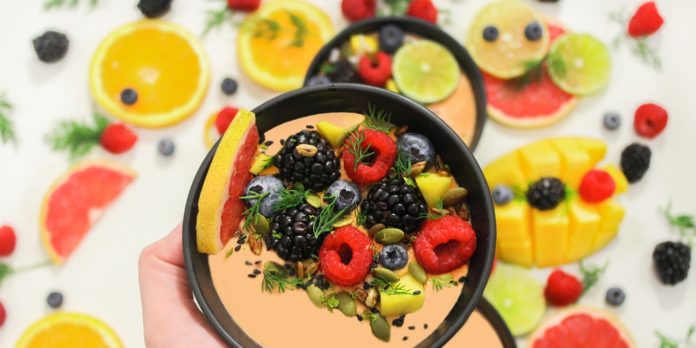Natural Sources of Vitamin K
Vitamin K is one of the essential vitamins the body needs to function properly. It is responsible for healthy bone health, proper blood clots, and healthy heart health. It is a vitamin that is present in foods. Thus, it is quite rare for you to be deficient in vitamins. Despite how rare vitamin K deficiency could be, when it occurs, it could be dangerous to the health and expose one to life-threatening health conditions. Both the lack of any iota of vitamin K in the body and an extremely low vitamin K content in the blood over a long time could lead to health conditions like;
- Heart diseases
- Poor bone mineral density
- Cognitive issues
- Cavities
- Certain cancers
- Osteoporosis
- Vascular calcification
- Slow healing of wound and blood clotting
What are the Risks of Vitamin K Deficiency?
These are the risks of vitamin K deficiency. This is why adding vitamin K-rich foods to your diet is important. In addition to these, vitamin K deficiency could also worsen if the following factors are present;
- Heavy alcohol consumption
- Celiac disease, Crohn’s disease, and other diseases that affect the gut health
- Malnourishment
- Usage of drugs that tamper with the absorption of vitamin K in the body
According to research, meeting the daily requirement of vitamin K is important. Experts have suggested that men should take up to 120 mcg of vitamin K daily. In comparison, women should take 90 mcg of vitamin K if they must maintain a healthy level of vitamin K in the body.
There are 2 types of vitamin K, both of which are effective enough to supply your body with sufficient amounts of vitamin K. The two types of vitamin K are; vitamin K1 and vitamin K2. Studies have shown that vitamin K1 is usually present in plant-based foods like green leafy vegetables. In contrast, vitamin K2 is present in animal-based foods or animal products like eggs, milk, meat, and cheese.
Unlike some vitamins that are only present in animal-based foods and products, vitamin K is present in both plant-based and animal-based foods, and this is good news for vegans and vegetarians because both vegans and vegetarians can get enough vitamin K from food sources without having to boost their body’s vitamin K levels with fortified foods and vitamin K supplements. Although some foods are rich sources of both types of vitamin K. These foods are the best for you to consume.
This article is packed with foods that have high amounts of vitamin K contents in them. One good thing about these foods is that they are tasty, delicious, and easy to add or incorporate into any diet.
The following are vitamin K-rich food sources;
7 Healthy Food Sources of vitamin K
Leafy Vegetables
According to research, eating leafy vegetables can boost the vitamin K content in your body. Studies showed that they can supply you with more than the required daily intake of vitamin K. Leafy vegetables like turnip greens, collards, and spinach contain about 426 mcg, 530 mcg, and 145 mcg of vitamin K per 100 g, respectively.
 All of these are more than what your body needs per day in terms of vitamin K. Other leafy vegetables you can consider are;
All of these are more than what your body needs per day in terms of vitamin K. Other leafy vegetables you can consider are;
- Arugula; contains 109 mcg of vitamin K per 100 g
- Bok choy; contains 46 mcg of vitamin K per 100 g
- Mustard greens; 258 mcg of vitamin K per 100 g
- Kale; contains 390 mcg of vitamin K per 100 g
- Red and green leaf lettuce; contains 126 mcg of vitamin K per 100 g
What’s more? Leafy vegetables are also great sources of antioxidants, fiber, other vitamins, and minerals, all of which play important roles in boosting your immune system and protecting your health.
You can easily add these vegetables to your salad or blend them into your smoothies.
Fish
One of the most common nutrients people know fish for is protein. However, fish has more to offer than just protein. Besides protein, fish is also a rich source of vitamin K. This is why you should load up your diet with fish. Fishes like tuna, herring, mackerel, and sardines, among others, have been proven to contain the highest amount of vitamin K compared to other fishes.
Coupled with their vitamin K content, they are also rich sources of omega 3 fatty acids, a compound that boosts heart health and improves general health. You can enjoy these fish either boiled, baked, or grilled. You can also add them to your soups, stews, and sauces.
Apples
Although studies have shown that fruits do not contain high amounts of vitamin K, unlike vegetables. However, the small amount of vitamin K in them can be used to complement other sources of vitamin K. Fruits like apples contain about 5 mcg of vitamin K and are easy to add to foods. Another good thing about fruits that contain vitamin K is that they are easy to snack on, especially on the go.
Apart from apples, some other fruits containing vitamin K include blueberries, prunes, avocado, and grapes. Half a cup of blueberries contains up to 14 mcg of vitamin K, half a cup of grapes contains 11 mcg of vitamin K, one average-sized avocado contains 50 mcg of vitamin K, while prunes contain 34 mcg of vitamin K.
Making fruit salad out of these fruits or blending them into your smoothies will boost your vitamin K levels and leave you healthy and strong because they are packed with other minerals and nutrients that boost your general health.
Soybeans and Soybeans Products
Studies have shown that soybeans, including products made from soybeans like tofu and soybeans oil, are good and rich sources of vitamin K. For instance, half a cup of soybeans contains about 45 mcg of vitamin K. Tofu; a soybeans product, on the other hand, contains 12 mcg of vitamin K per serving, while soybeans oil contains 23 mcg of vitamin K per tablespoon. In addition, immature soybeans, also known as edamame, are a great source of vitamin K and can be perfect snacks, especially on the go.
Besides vitamin K, soybeans are also packed with other health-boosting nutrients like protein. Thou can blend some roasted soybeans dry and add the powder to your teas, smoothies, yogurts, and custard.
Eggs
Eggs are part of the healthiest and most versatile foods in the world. This is because they are packed with almost all the vitamins and minerals the body needs to perform its functions properly. Eggs are also tasty and delicious and can be easily incorporated into any kind of diet. The vitamin K content in one egg can meet up to one-third of your required daily intake of Vitamin K. You can enjoy eggs either boiled or fried. You can also make scrambled eggs out of them. Whichever method of cooking you choose will still supply you with a significant amount of vitamin K. Just make sure that you consume at least 1 egg per day.
Nuts
Nuts are healthy sources of different vitamins. However, one of the most prominent vitamins in nuts is vitamin K. Studies have shown that combining cashew nuts with pine nuts can give you all the burst of vitamin K that your body kees to function properly. Nuts are also packed with anti-inflammatory and antioxidant properties besides their vitamin K content.
They are also packed with healthy oils, protein, and fiber. One good thing about nuts is that they are good to snack on and are mobile. You can enjoy these nuts by chewing them or blending them dry and adding them to your smoothies or yogurt. You could also add them as ingredients to your foods like pasta, rice, sauce, and stews.
Pumpkin
Pumpkin is another good source of vitamin K. Studies have shown that half a cup of pumpkin contains about 20 mcg of vitamin K, which can complement the other food sources of vitamin K. Other nutrients are present in pumpkins, and these nutrients include potassium, which boosts the function of the heart, vitamin A, which improves sight and beta carotene which helps promote healthy skin.
 You can enjoy pumpkin by adding it to your stews, soup, and sauces. Experts have also suggested that adding powdered pumpkin smoothies and baked goods can help increase your intake of pumpkin and invariably boost your vitamin K intake.
You can enjoy pumpkin by adding it to your stews, soup, and sauces. Experts have also suggested that adding powdered pumpkin smoothies and baked goods can help increase your intake of pumpkin and invariably boost your vitamin K intake.
Conclusion
Vitamin K is essential for protecting heart health and encouraging a healthy process of wound healing. It is present in foods like vegetables, fruits, eggs, and nuts. Vitamin K deficiency can expose one to life-threatening health conditions. ♦




